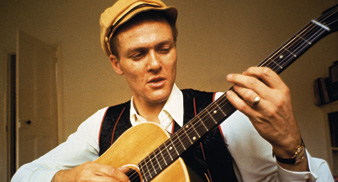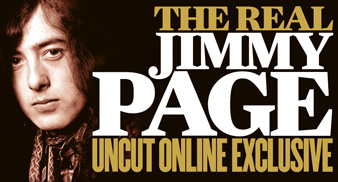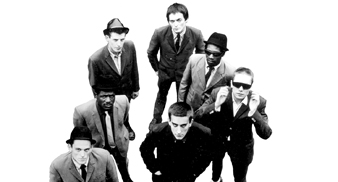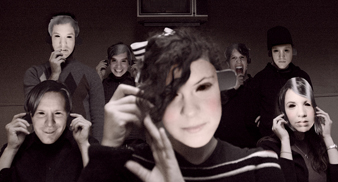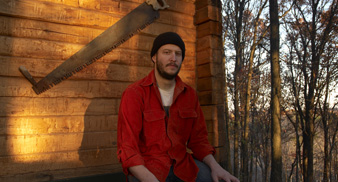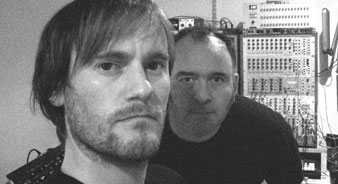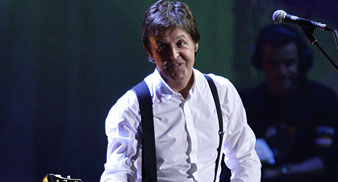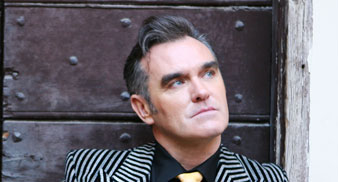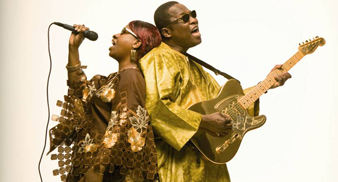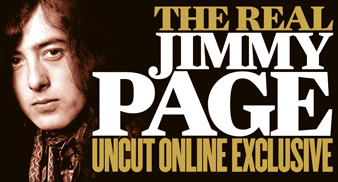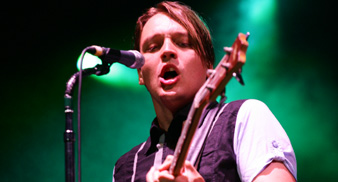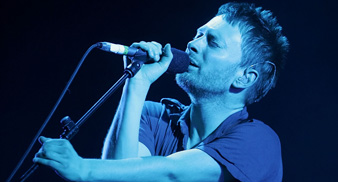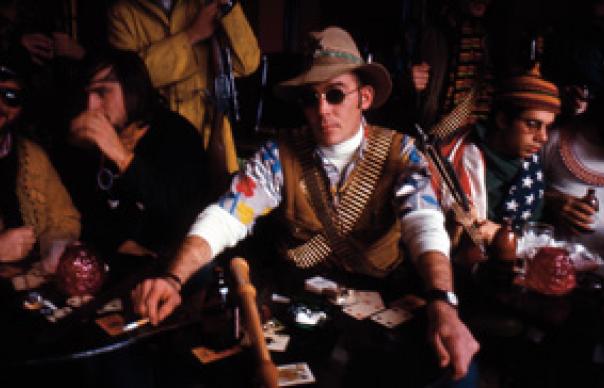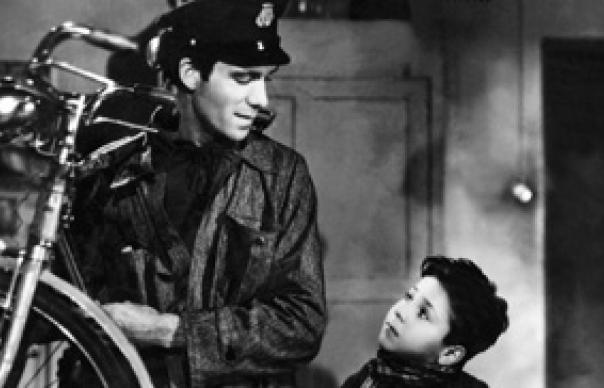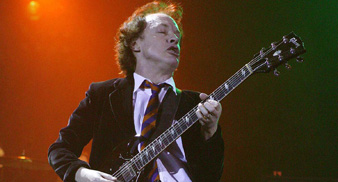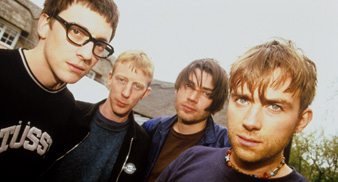In the January issue (on sale now) of Uncut , we celebrated the career of rock’s greatest and most mysterious guitar hero through the first hand accounts of the people who know him best.
Here at www.uncut.co.uk, we’ll be posting the full and unedited transcripts from those interviews, including words from Robert Plant, Jeff Beck, Roy Harper, Steve Albini and more.
Today… ROY HARPER
Brilliantly ornery English singer-songwriter and long-term Page associate, celebrated by “Hats Off To (Roy) Harper” on Led Zeppelin III. Jimmy played on Harper’s Stormcock – credited as “S Flavius Mercurius” – and toured with Harper on their 1985 collaboration, Whatever Happened To Jugula?
***
ROY HARPER: Did I lead Led Zep astray? Regarding the narcotics, I think we were all as bad as each other. Musically, I might have done though. I’ve always thought of Jimmy as a real gent. He might not have shown up a couple of times, but he knows I forgive him for stuff like that. I think if Jimmy and I share anything, it’s in our own sense of self-belief. You can sometimes have no confidence at all, but still have an underlying self-belief that can’t be touched. And I suspect Jimmy’s the same in that way. We were both in skiffle bands around the same time and come from the same musical root as young teenagers.
After Led Zep, we started playing together again. I’d always wanted to get something together with him. But the times weren’t right. The ‘80s were just about the worst time in my whole life. It was a period in time that was just absolutely horrible. And neither Jimmy nor myself seemed to be able to dedicate enough time to it. I always take a long time to prepare before I write new stuff, but I think Jimmy was distracted as well. He’d just come out of the biggest band in the world and was kind of looking for something to do. But at the same time, he wasn’t. He didn’t have to do anything. We never really got together properly and didn’t give each other enough of a chance. And I regret that now. It was both our faults. In the ‘80s, we were both stacked with energy and we could have done something together that would have meant something.
The main problem was rehearsal time. I lived in the north and Jimmy lived in the south, so it wasn’t as though we were living next door to each other. We weren’t in that position. It was always a procedure to get together, with instruments and everything. What it suffered from, his and my playing, was non-rehearsal. That was the stumbling block. We were great when we got together, the same good friends. But because we didn’t dedicate time to rehearsal, we never really got anything off the ground. [1985’s Whatever Happened To] Jugula was a good starting point, but it was mainly my songs with Jimmy’s playing attached to it. But if he’d given me some pieces to work on and we’d done it together, then we would have had a totally different album altogether.
I think that was the nature of both of our lives at the time. In some ways, it was down to laziness, that ‘Oh, we’ll do it later’ attitude. But I wish I’d moved in next door, as it were. I’ve no idea how Jimmy feels about that time now, but I’d think he probably regrets not making more of it too. He’d had so many opportunities to do so many different things, but the big problem was: what do you do after Led Zeppelin? Anything you do is likely to be looked at as going downhill. And as well as the reticence on his part for not wanting to really get into anything, we do have our own idiosyncrasies too. After something as big as Led Zep, you have to find someone you specifically believe in and dedicate your career to starting again. You have to actually start again with energy. But what do you do if you’ve got the ability to actually pay to fly to the moon?
[Touring in ‘84] I was down at Jimmy’s place in Windsor and I’d got naked for Sundays. I’d got my girl with me, you know, we were enjoying it. Then suddenly I’m getting bitten by gnats, as we were by the water. I didn’t think much of it, so we got dressed and everything. Two days later, Jimmy and I are doing TV up in the Lakes, for Whistle Test. By then, I’d come up in eggs all over my arms and legs. It was my first allergic reaction to some pathogen I hadn’t come across before. So at lunchtime, I went into Jimmy’s room. The previous night, we’d been pissing around with the TV crew. We had some white snuff, which they thought was cocaine. It was comical. So when I went into Jimmy’s room on the day of the shoot, I showed him these eggs and he said “Ah, I’ve got something for that”, and he gave me some antihistamines. We were due to film a couple of hours later, but just as we get up there, I decided to drink a can of Holsten. But it reacted with the antihistamine and I couldn’t play.
I realized really quickly what was happening, so asked my girlfriend to run down to the stream with an empty water bottle and fill it up for me, so I could wash it all out of my system. But it didn’t wash out in time, so the TV people, of course, thought that Jimmy and I were both completely stoned. That we were being rock’n’roll crazies and were totally out of it. And they decided they weren’t going to have anything to do with us. It was a virtual write-off. I tried to say tell producer Trevor Dann that we should give it an hour, because then I’d be able to play again. It was just the antihistamines, but they didn’t believe us. They told Jimmy and I they had a dinner party to go to in London. And the dinner party won. But it was a terrible thing, a real catalogue of errors. Talk about bad luck. It’s a strange memory, but a really good memory.
I have fantastic memories of playing together with Jimmy. I love playing with him. I think Jimmy’s one of the most spontaneous players I’ve ever met. He does things that are really unusual. What he likes to do is improvise. I’ve played with a lot of people, but him and Hendrix stand out. I played with Hendrix in a couple of clubs early on, but for my own taste, I think Jimmy Page has it. I’ll get castigated for that, but I think it’s true. He’s very generous too. He doesn’t try and stamp himself all over a piece of music he doesn’t know about. He’s wanting to know what it’s all about. He’s very amenable and a very sensitive player in that way.
Very early on, Robert [Plant], Jimmy and myself were listening to something one of us had done. I said “Jimmy, are you out of tune there?” And Robert flew at me: “What do you mean, is he out of tune? He’s never out of tune!” I thought shit, I’ve been really told off. I told them not to worry about it and that I’d just listen again. So I listened to it again. It was out of tune, but at the same time, it wasn’t. There was an ethos about it that was completely on the ball. And it had taken Robert, just with a couple of words, to tell me that not everything is perfectly in tune, but it is if you listen to the context. He was being very protective of Jimmy, but at the same time, it was a good lesson for me to learn. I took it as an educated thing from Robert. Both he and Jimmy were in a realm were those things had ceased to be the major concern. The major concern was the feel of the music. And that is the real nature of rock’n’roll, the core of it.
INTERVIEW BY ROB HUGHES


